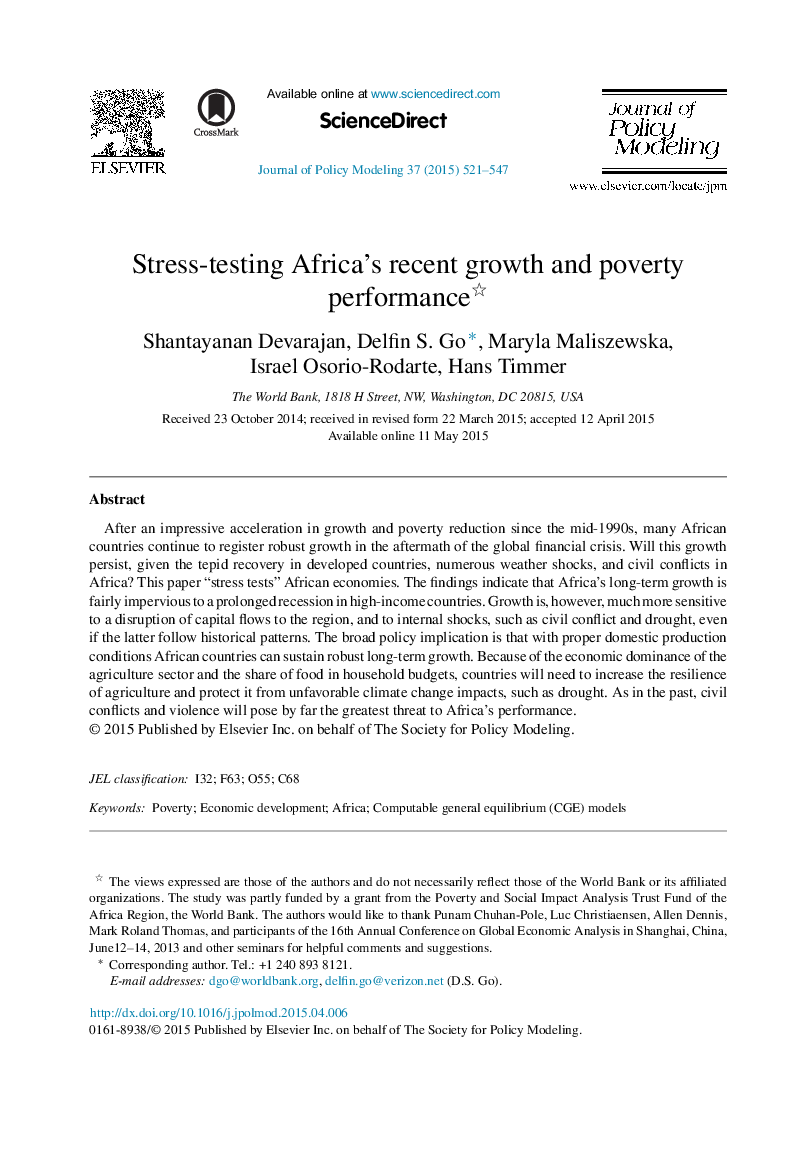| Article ID | Journal | Published Year | Pages | File Type |
|---|---|---|---|---|
| 969190 | Journal of Policy Modeling | 2015 | 27 Pages |
After an impressive acceleration in growth and poverty reduction since the mid-1990s, many African countries continue to register robust growth in the aftermath of the global financial crisis. Will this growth persist, given the tepid recovery in developed countries, numerous weather shocks, and civil conflicts in Africa? This paper “stress tests” African economies. The findings indicate that Africa's long-term growth is fairly impervious to a prolonged recession in high-income countries. Growth is, however, much more sensitive to a disruption of capital flows to the region, and to internal shocks, such as civil conflict and drought, even if the latter follow historical patterns. The broad policy implication is that with proper domestic production conditions African countries can sustain robust long-term growth. Because of the economic dominance of the agriculture sector and the share of food in household budgets, countries will need to increase the resilience of agriculture and protect it from unfavorable climate change impacts, such as drought. As in the past, civil conflicts and violence will pose by far the greatest threat to Africa's performance.
